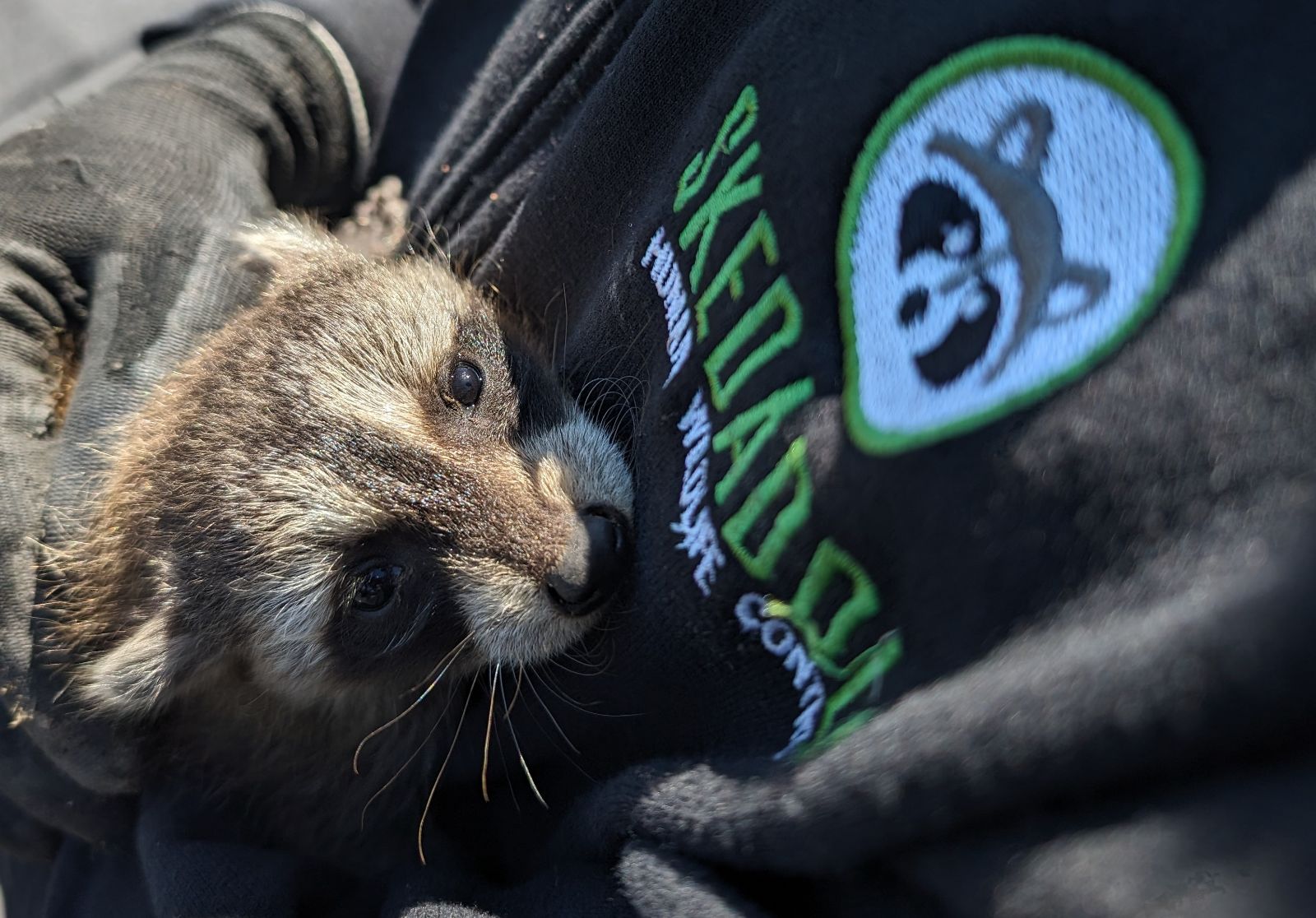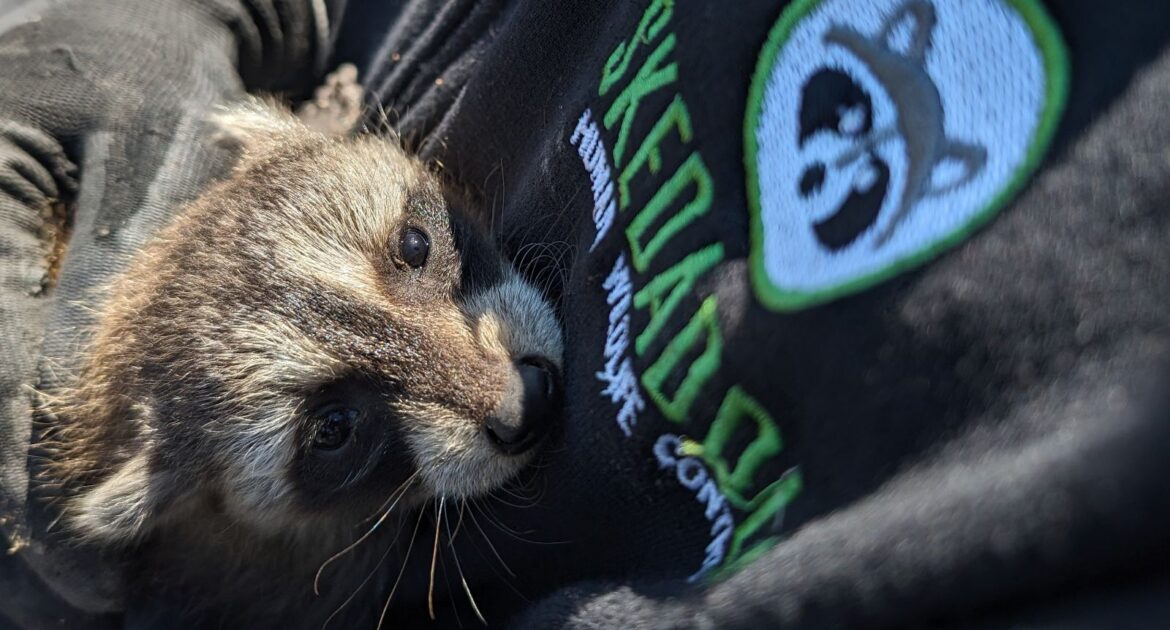Raccoons are clever, adaptable animals that have learned to thrive in urban environments like Montreal. While they may seem harmless from afar, their resourcefulness can sometimes lead them into unexpected places—like your chimney. This raises an important question for homeowners: can raccoons come down the chimney? The answer is yes, and understanding why and how this happens is key to protecting your home.
Chimneys can be an inviting space for raccoons, especially during colder months. They provide warmth, shelter, and safety from predators. But having raccoons in chimneys can lead to risks for both the animals and your home. Let’s explore how raccoons end up in chimneys, the signs they’re there, and how to prevent them from making your fireplace their new home.
Why Do Raccoons Choose Chimneys?
Raccoons are highly intelligent and resourceful animals. They are excellent climbers, capable of scaling trees, fences, and even the sides of buildings. Chimneys, with their enclosed structure and warmth, are particularly appealing to raccoons looking for a safe place to rest or raise their young.
Here are some reasons why raccoons might choose your chimney:
- Warmth: Chimneys provide a cozy environment, especially during Montreal’s cold winters.
- Safety: The enclosed space offers protection from predators like coyotes or large birds of prey.
- Nesting: Female raccoons often seek out secure spots to give birth and care for their babies, making chimneys an ideal location.
Understanding these motivations can help homeowners take proactive steps to prevent raccoons in fireplaces and chimneys.
How Do Raccoons Get Into Chimneys?
Raccoons are incredibly agile and can access chimneys in several ways. They often climb nearby trees, fences, or even downspouts to reach rooftops. Once on the roof, they can easily enter a chimney if it’s not properly secured.
Here’s how they do it:
- Climbing: Raccoons can climb vertical surfaces with ease, using their sharp claws and strong limbs.
- Loose Chimney Caps: If a chimney cap is damaged or missing, raccoons can slip right in.
- Overhanging Branches: Trees close to your home provide a convenient pathway to the roof.
A study by the Humane Society of the United States found that raccoons are one of the most common urban animals to seek shelter in chimneys, highlighting the importance of securing these entry points.
Signs of Raccoons in Chimneys
If you suspect raccoons have taken up residence in your chimney, there are several telltale signs to watch for. Identifying these early can help you address the issue before it becomes a bigger problem.
Look out for:
- Unusual Noises: Scratching, thumping, or chittering sounds coming from the chimney, especially at night.
- Strong Odours: A musky smell or the scent of droppings near the fireplace.
- Debris: Twigs, leaves, or nesting materials falling into the fireplace.
- Droppings: Raccoon droppings near the base of the chimney or in the fireplace itself.
If you notice any of these signs, it’s important to act quickly and contact a professional for chimney wildlife removal. Ignoring the problem can lead to further damage and health risks.
The Risks of Raccoons in Chimneys
Having raccoons in chimneys isn’t just a nuisance—it can pose serious risks to both your home and the animals themselves. Here’s what you need to know:
Fire Hazards
If a chimney is occupied by raccoons or their nesting materials, using the fireplace can create a fire hazard. Twigs, leaves, and other debris can ignite, potentially causing a chimney fire.
Structural Damage
Raccoons are strong and can cause damage to the interior of a chimney. They may claw at the walls or dislodge bricks, leading to costly repairs.
Health Concerns
Raccoon droppings can carry harmful parasites, such as raccoon roundworm, which can pose health risks to humans and pets. According to the Canadian Wildlife Health Cooperative, raccoon roundworm infections, while rare, can have serious consequences if left untreated.
By addressing these risks promptly, you can protect both your home and the raccoons from harm.
How to Prevent Raccoons in Fireplaces and Chimneys
Prevention is the best way to avoid the challenges of raccoons in chimneys. Taking proactive steps can save you time, money, and stress in the long run.
Here are some effective prevention tips:
- Install a Chimney Cap: A secure, professionally installed chimney cap is one of the most effective ways to keep raccoons out.
- Inspect Your Roof Regularly: Check for loose shingles, gaps, or other vulnerabilities that raccoons could exploit.
- Trim Overhanging Branches: Keep tree branches at least 3 metres away from your roof to limit access.
- Secure Other Entry Points: Ensure vents, soffits, and other openings are properly sealed.
It’s important to rely on professionals for these measures to ensure they are done safely and effectively. DIY solutions can often lead to unintended consequences or harm to wildlife.
Humane Solutions for Chimney Wildlife Removal
If you already have raccoons in your chimney, it’s crucial to handle the situation humanely. Professional wildlife control services, like Skedaddle Humane Wildlife Control in Montreal, specialize in safe and ethical removal methods.
Here’s what a professional service typically involves:
- Inspection: Identifying the presence of raccoons and assessing the situation.
- Removal: Using humane techniques to safely remove the animals without causing harm.
- Prevention: Installing chimney caps and addressing other vulnerabilities to prevent future issues.
By choosing a humane approach, you can ensure the safety of both your home and the raccoons.
Raccoon Control: Prevention and Humane Removal
Raccoons are remarkable animals, but their adaptability can sometimes lead them into places they shouldn’t be—like your chimney. Understanding why raccoons in chimneys occur, how they get there, and the risks involved is the first step in protecting your home.
By taking proactive measures, such as installing chimney caps and securing your roof, you can prevent raccoons in fireplaces and chimneys. And if you do encounter a raccoon in your chimney, remember that professional, humane wildlife control services are the best solution.
For expert advice and assistance, contact Skedaddle Humane Wildlife Control in Montreal. With their help, you can keep your home safe while ensuring a respectful coexistence with wildlife.




